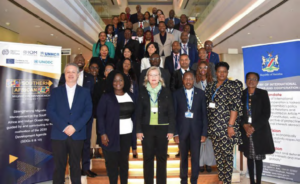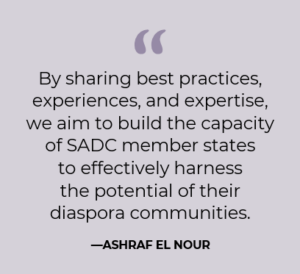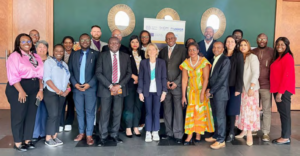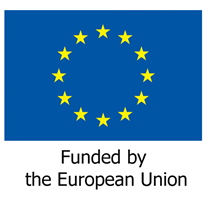The International Organisation for Migration (IOM), with support from the European Union-funded project “Southern Africa Migration Management (SAMM)”, is holding a regional workshop on diaspora engagement and mapping toolkit in Windhoek, Namibia from May 30 to June 1, 2023. The workshop will enhance national technical and institutional mechanisms from the 15 SADC member States for effective diaspora engagement and mapping.
IOM’s Diaspora Mapping Toolkit offers practical guidance and tools for stakeholders involved in diaspora mapping and engagement for development. It promotes a bottom-up approach to building an effective and sustainable system, and provides specific methodological approaches and tools for Southern Africa.
 “This workshop marks another milestone in our collective efforts to enhance diaspora engagement,” said Mr Ashraf El Nour, IOM Regional Director for Southern Africa, at the opening ceremony. “By sharing best practices, experiences, and expertise, we aim to build the capacity of SADC member states to effectively harness the potential of their diaspora communities”.
“This workshop marks another milestone in our collective efforts to enhance diaspora engagement,” said Mr Ashraf El Nour, IOM Regional Director for Southern Africa, at the opening ceremony. “By sharing best practices, experiences, and expertise, we aim to build the capacity of SADC member states to effectively harness the potential of their diaspora communities”.
Despite the progress that has been made by the SADC Member States in the diaspora engagement, some gaps still exist in mapping their diaspora, leading to limited understanding of the spread, skills and profiles of the diaspora which focused on empowering the diaspora for regional development communities. This effort will use IOM’s diaspora mapping toolkit to help build institutional and technical capacity for effective mapping. The workshop complements the recommendations of the regional diaspora and investment forum held in Mauritius in 17–19 October 2022.
 “Migration has been proved to be a fast path to reducing poverty not only for the diaspora but also for families left behind through remittances” said Ambassador Penda Naanda, Executive Director, Ministry of International Relations and Cooperation. “Therefore, the Governments of the SADC Member States need to facilitate the flow of remittances by reducing the cost of remitting money, he concludes”.
“Migration has been proved to be a fast path to reducing poverty not only for the diaspora but also for families left behind through remittances” said Ambassador Penda Naanda, Executive Director, Ministry of International Relations and Cooperation. “Therefore, the Governments of the SADC Member States need to facilitate the flow of remittances by reducing the cost of remitting money, he concludes”.
IOM, the United Nation Development Funds (UNDP), and the African Union Commission (AUC), have set up a diaspora framework program to use diaspora-related resources for national, regional, and continental development. Southern Africa Development Community (SADC) Member States are increasingly interested in engaging with their diaspora communities to develop the region and make productive use of remittance income.
 English
English



 Across the world, dangerous trends on mixed migration are observed. These include increasingly high numbers of migrants who go missing or die along mixed migration routes, ongoing commodification of refugees and migrants, and rising violent pushbacks and expulsions at borders. Despite these challenges, refugees and migrants are continuing their journeys and often taking great risks. It is therefore essential that policymakers develop better migration policies, based on solid evidence and analysis. With the right policy, legislation and practices in place, Southern Africa Development Community (SADC) countries can achieve fair and effective migration governance fostering a positive impact of international migration in the economic growth and development of countries of origin, transit, and destination.
Across the world, dangerous trends on mixed migration are observed. These include increasingly high numbers of migrants who go missing or die along mixed migration routes, ongoing commodification of refugees and migrants, and rising violent pushbacks and expulsions at borders. Despite these challenges, refugees and migrants are continuing their journeys and often taking great risks. It is therefore essential that policymakers develop better migration policies, based on solid evidence and analysis. With the right policy, legislation and practices in place, Southern Africa Development Community (SADC) countries can achieve fair and effective migration governance fostering a positive impact of international migration in the economic growth and development of countries of origin, transit, and destination.
